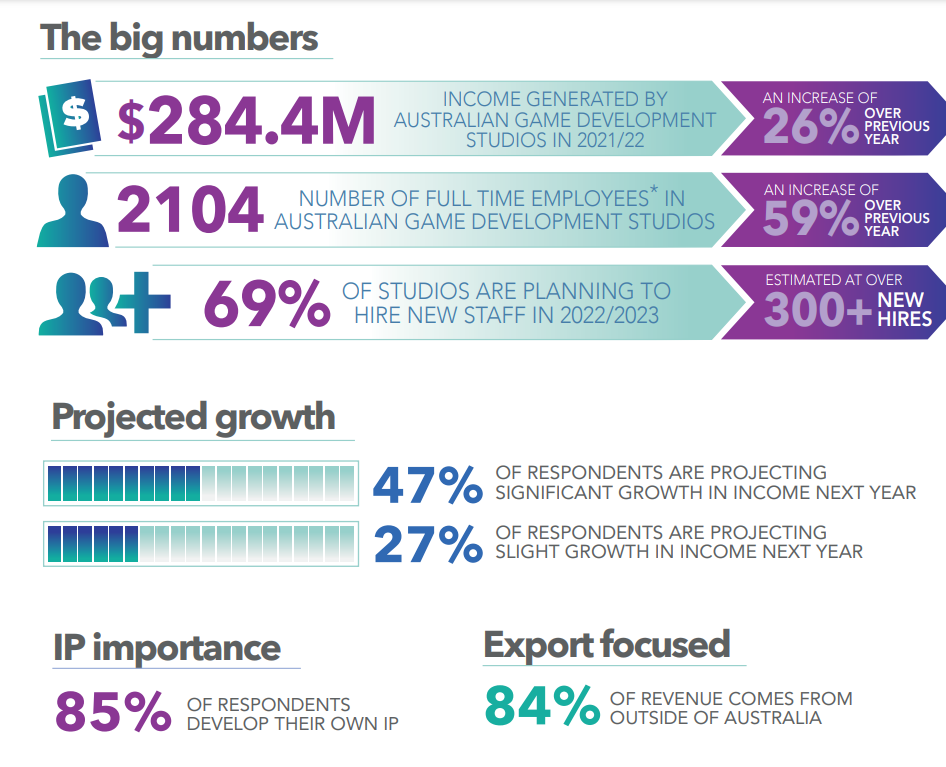The Interactive Games and Entertainment Association (IGEA) has encouraged the Australian games industry to consider its future pipeline of talent, following new data showing nearly 800 new jobs were created across the sector in the 2021/22 financial year.
According to the IGEA’s sixth annual Australian Game Development Survey, which featured input from 102 development studios, companies reported a 26 per cent growth in revenue, with the number of games employees rising to 2,104.
The majority of studios surveyed were between 6–9 years old (48 per cent), with 28 per cent having existed for ten or more years. Eighty per cent had created at least one game.
While 69 per cent of developers are expected to hire new staff before the end of the current financial year, creating a minimum of 300 new jobs, they identified procuring employees with specialised skills as their greatest challenge during the reporting period.
IGEA CEO Ron Curry told IF the survey had shown “there were a few things at play” when it came to the future of the sector’s workforce, which is primed for further growth following the introduction of the Digital Games Tax Offset (DGTO) last month.
“What we can see is that the industry in Australia is growing and there is a need to employ,” he said.

“The business sizes are growing as well and as that happens, there is a greater need for senior talent to bring in junior talent.
“We also have the DGTO coming in, which we believe will create further growth and the opportunity for larger studios to open up in Australia.
“While all of that combined is good news, it puts pressure on the current talent that is available in the country.”
It’s not the first time the IGEA has flagged the issue, with the organisation calling for a “quick and immediate review” of Australia’s skilled migration settings in relation to information-based workers as part of its 2022 Federal Election Policy Platform.
In September, the new government announced the migration cap will be lifted to 195,000 places for 2022/23, of which 142,400 places will be skilled.
Curry said while IGEA welcomed the news, it was “another foot on the break” for accessing talent, having worked with the previous government for more than two years on a potential new labour agreement.
“We’re waiting to find out how easy that is going to be able to use, as well as what friction is going to be in there, and what the cost is going to be,” he said.
He also noted there was a “double-edged sword” in attracting students and school leavers to the industry.
“Up to now, you have been able to create that interest but the roles weren’t there,” he said.
“Now we’re coming to a position where those roles potentially are there, so it is up to the industry to work with educators, and inversely, for educators to work with industry to sure the right level of training is happening and there is the right exposure to the opportunities the industry has.
“It’s also about the transferrable skills that can be learned; we all know there are many industries that are poaching game developers for many reasons, ranging from defence, mining, and medicine, as well as consultants, such as Deloitte and PwC.
“They’re all looking for skills games developers have.”
Find the full results of the survey here.



